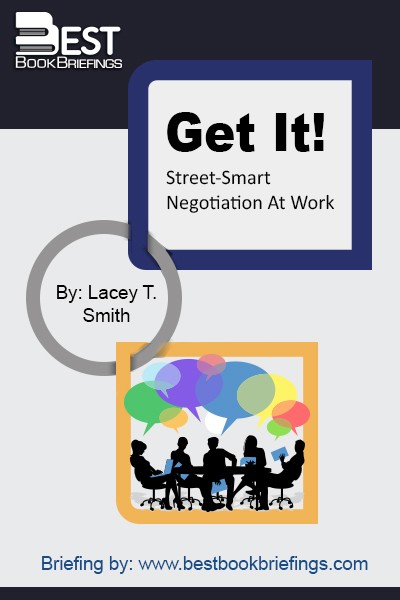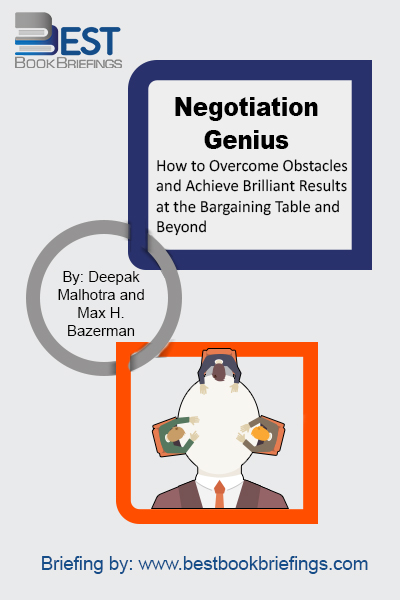Negotiation Genius
How to Overcome Obstacles and Achieve Brilliant Results at the Bargaining Table and Beyond
Editorial Review
From two leaders in executive education at Harvard Business School, here are the mental habits and proven strategies you need to achieve outstanding results in any negotiation. Whether you’ve “seen it all” or are just starting out, Negotiation Genius will dramatically improve your negotiating skills and confidence. Drawing on decades of behavioral research plus the experience of thousands of business clients, the authors take the mystery out of preparing for and executing negotiations—whether they involve multimillion-dollar deals or improving your next salary offer.
Book Reviews
Books on Related Topics

This book is for the person in the trenches, who needs practical guidelines to get the very best deal possible with people and organizations that have very different backgrounds and experiences. This book is for the practitioner—for the person who faces an international negotiating challenge and who perhaps should have done

We all negotiate on a daily basis. We negotiate with our spouses, children, parents and friends. We negotiate when we rent an apartment, buy a car, purchase a house and apply for a job. The ability to negotiate might be the most important factor in your career advancement. Negotiation is also

Street-smart negotiation at work is a guide to the art of dealing: leveraging the powers of emotion, recognizing them and adding them into one’s strategy. Additionally, there are the importance of being completely honest with oneself, proper preparations before one approaches the negotiating table, and how to cultivate three skills to

Negotiating is something that we all do, whether at work or at home. But what if we come across someone who just won’t give in? How can we defend ourselves against manipulation? And how do we say “no” without compromising a deal? Using the official Kremlin method, Igor Ryzov guides us through



